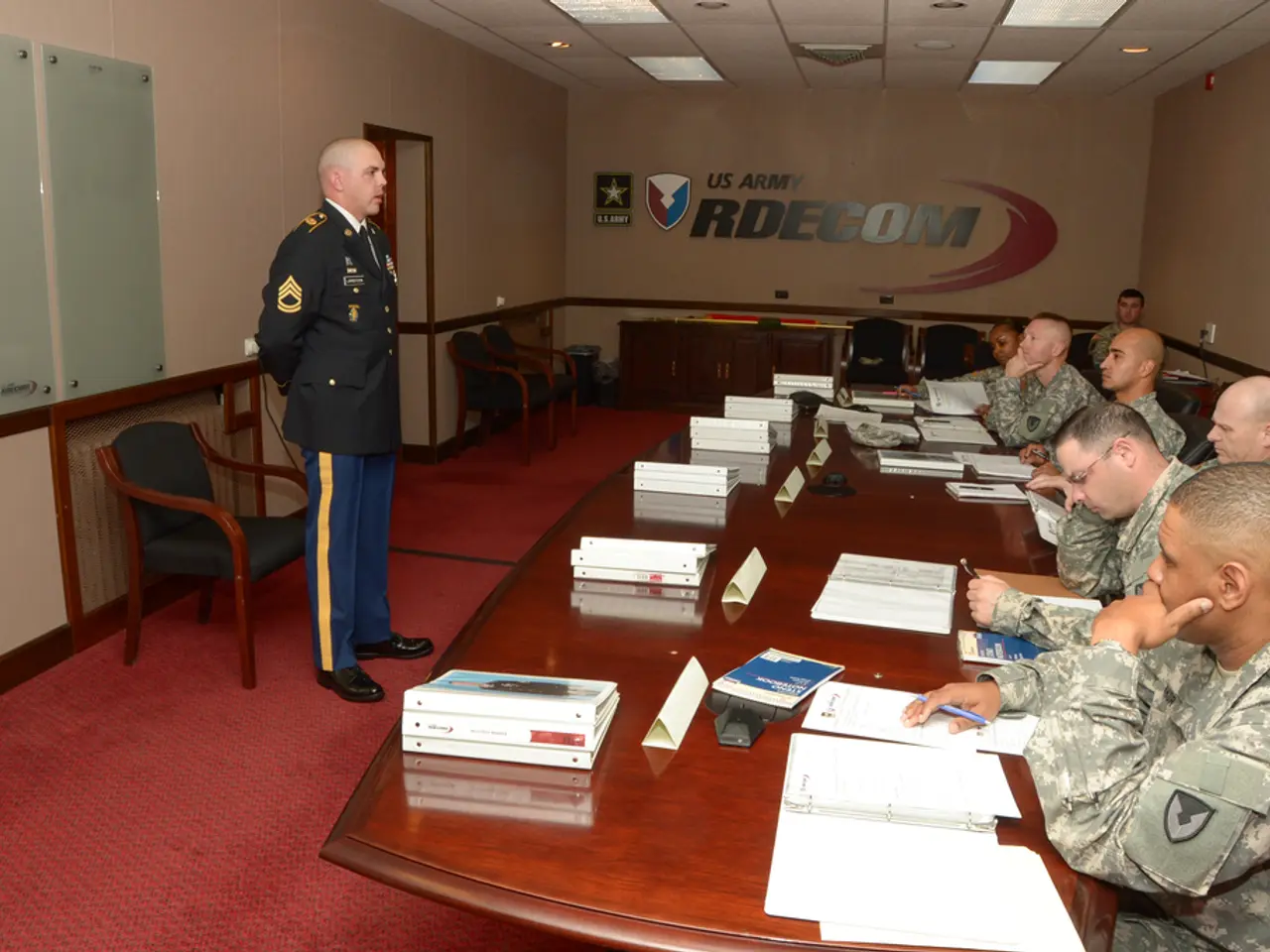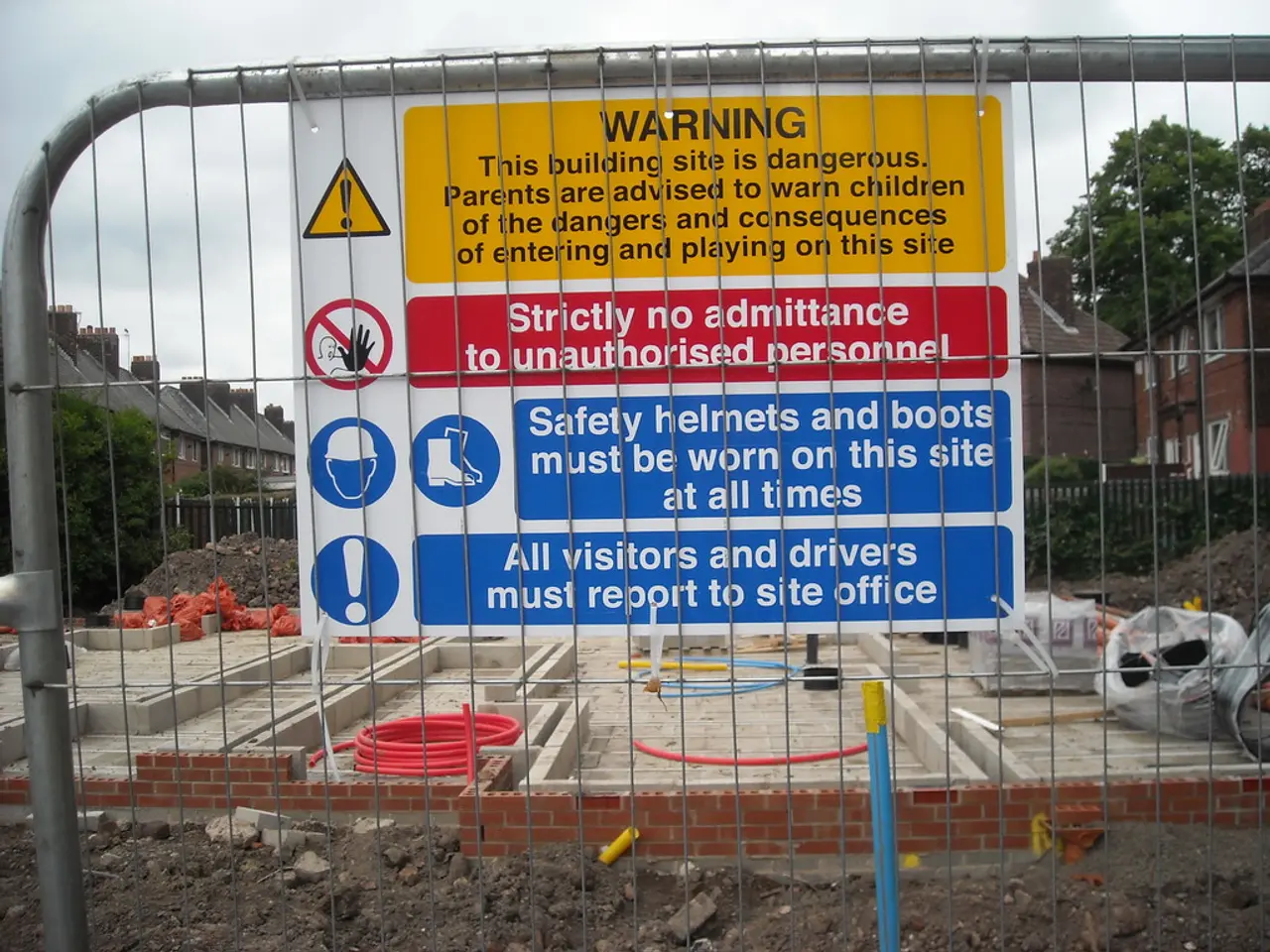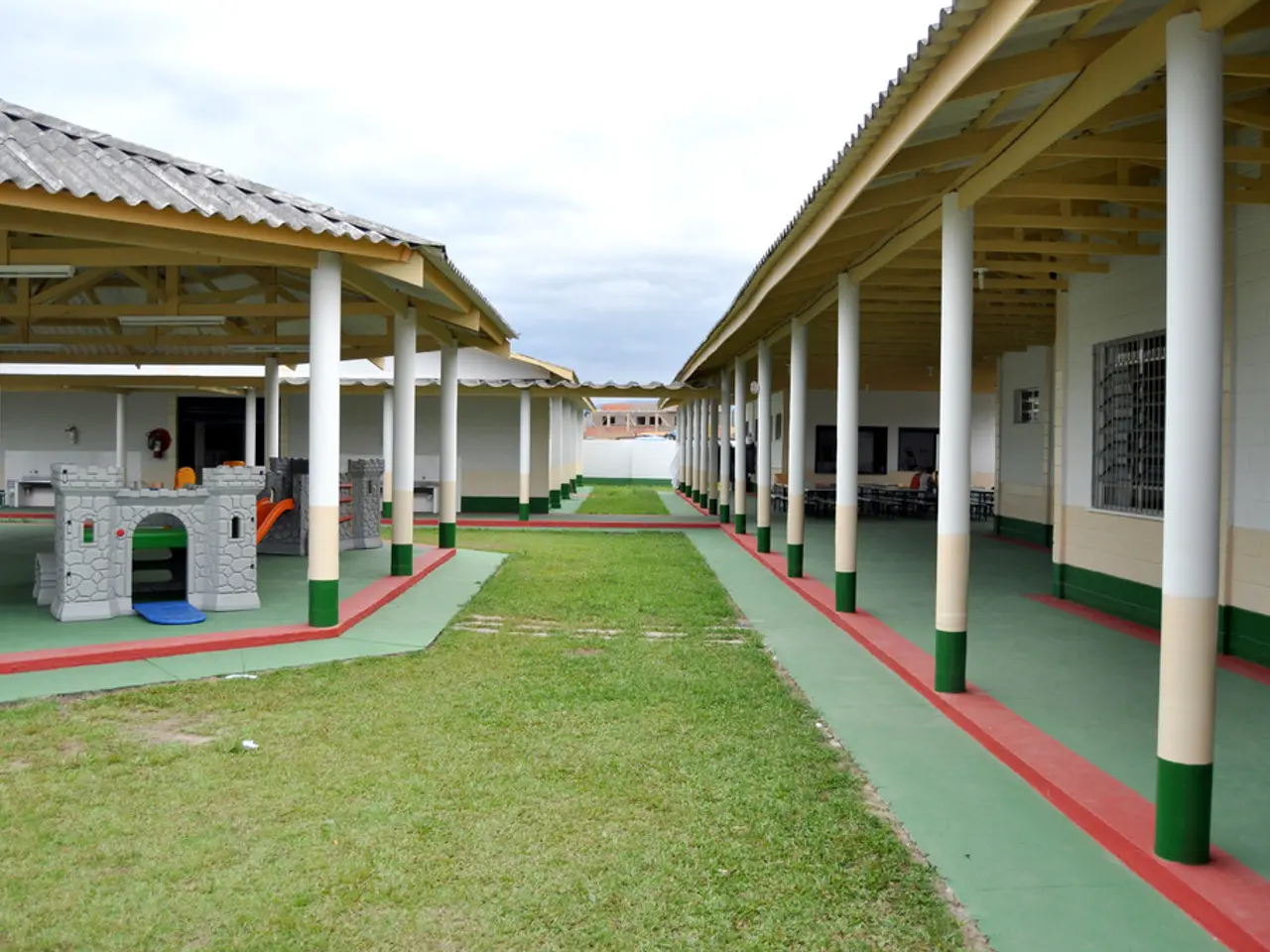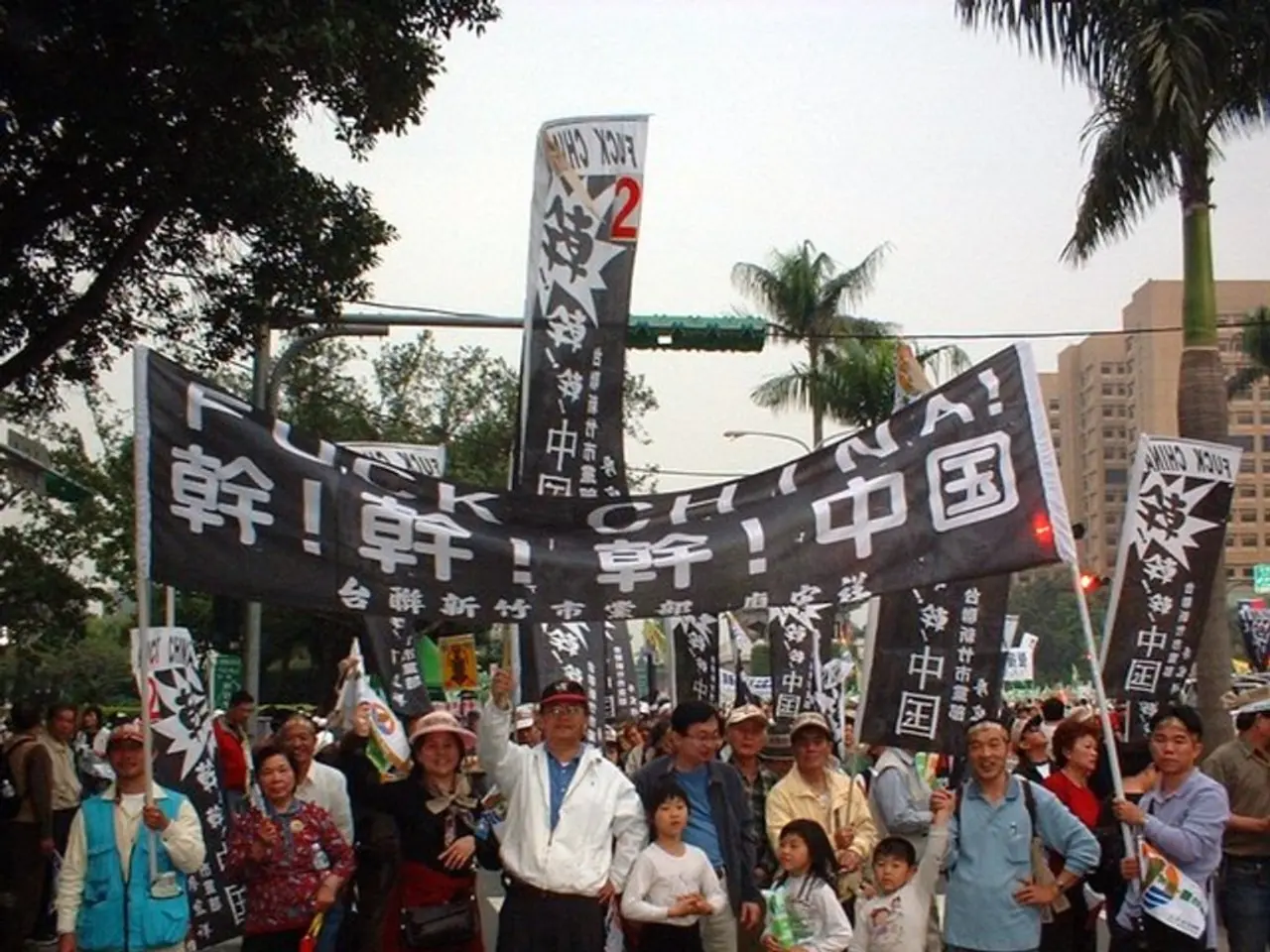Parliament's security demonstrated a substantial flaw in the "Shimaneck case"
In a surprising turn of events, the former Chief of Staff to National Council President Walter Rosenkranz, Rene Schimanek, is under investigation by the Krems public prosecutor's office for violations of the Nazi Prohibition and Weapons Act. The case has sparked controversy and raised questions about the security clearance protocols for employees with access to confidential files and committees.
Schimanek, who was previously employed as the chief of staff, has been accused of possessing large quantities of ammunition and Nazi memorabilia, which were found in a forest house in Langenlois, where he was registered. These allegations have led to a thorough investigation, with Schimanek denying the accusations and the presumption of innocence applying.
Interestingly, it has been noted that employees of the second-highest office of the Republic in terms of protocol, such as the chief of staff to the National Council President, are not subject to annual security checks by the constitutional protection service. This practice has been a topic of discussion, with some finding it scandalous that an individual with such access to sensitive information was not checked for security clearance.
Green Party representative Lukas Hammer, in particular, has expressed concern over this matter. He stated that it is alarming that Schimanek, given his access to confidential files and committees, was not subjected to security clearance checks.
In contrast, it is common practice for parliamentary journalists and long-serving parliamentary staff to undergo annual security checks by the constitutional protection service. This tightened security measure is aimed at ensuring the safety and confidentiality of the House of Parliament.
The constitutional protection service is responsible for conducting these annual security checks in Parliament. However, it seems that this tightened security measure does not apply to employees of the second-highest office of the Republic.
In response to an inquiry about this matter by Green Party representative Lukas Hammer, National Council President Walter Rosenkranz stated that the constitutional protection service had not checked Schimanek, as a "security check is not legally provided for." The parliamentary directorate also stated that a security check is "not necessarily required" for employees like Schimanek who were previously contract employees of the Parliament.
This situation highlights a potential loophole in the system, as the lack of annual mandatory screening for employees with access to confidential files could pose a security risk. The practice may be due to the structure of national security regulations, the nature of the role, or procedural norms that focus on initial clearance and renewal rather than yearly checks.
However, it is essential to note that this is a complex issue, and further investigation is needed to fully understand the reasons behind this practice and to ensure the safety and confidentiality of all sensitive information within the Republic's offices.
The investigation of Rene Schimanek, former chief of staff to National Council President Walter Rosenkranz, for violations of the Nazi Prohibition and Weapons Act has raised questions about the security clearance protocols for employees with access to confidential files and committees. This situation has brought politics and general-news into the spotlight, as concerns about crime-and-justice arise due to Schimanek's alleged possession of ammunition and Nazi memorabilia.
Green Party representative Lukas Hammer has expressed concern over the fact that Schimanek, given his access to confidential files and committees, was not subjected to security clearance checks, which has sparked a debate in the realm of politics and general-news regarding the current security protocols in place.





